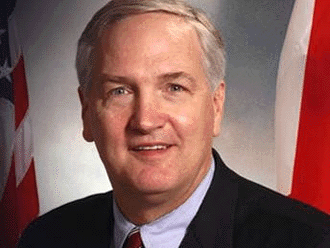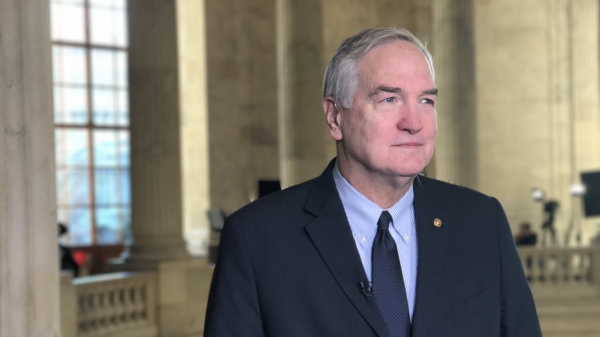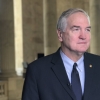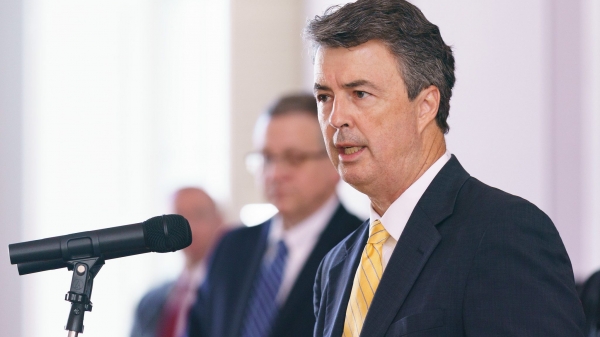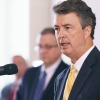Staff Report
DAPHNE, Alabama — Alabama Attorney General Luther Strange said Tuesday he thinks the U.S. Supreme Court will rule that the Affordable Care Act, also known as Obamacare, is unconstitutional.
“I predict they are going to throw it out,“ Strange said at an Eastern Shore Chamber of Commerce economic development luncheon.
But, he said, “There’s no gambling in Alabama, so don’t bet on that.“
A ruling in the landmark case challenging President Barack Obama’s health care initiative is expected Thursday. Alabama is one of 26 states challenging Obamacare, and Strange said he sat in on oral arguments before the Supreme Court.
Strange said the case boils down to what government can force an individual to do, in this case to purchase health insurance. Regardless of how the Supreme Court rules, the decision will have far-reaching ramifications.
“Whatever happens on Thursday is going to affect your business. I can assure you of that,“ Strange said.
In the wake of another key Supreme Court ruling Monday throwing out much of Arizona’s immigration law, Strange said the U.S. 11th Circuit Court of Appeals has already asked both sides for briefs in a similar case challenging Alabama’s law.
The parties are asked to present their interpretations of how the Supreme Court ruling affects the Alabama law, which is similar to Arizona’s. Briefs are due a week from Friday, Strange said.
The 11th Circuit’s role will be to define where Alabama’s law stands in light of the Arizona ruling.
The immigration ruling reinforces the role of state law enforcement working with federal law enforcement, in that a state or local officer can check the immigration status of someone who is stopped for another reason, Strange said.
As for other provisions in the Alabama law, “These are more problematic now, as of yesterday.“
Strange said that because the Obama administration has indicated that enforcing federal immigration law is not a priority, state and local law enforcement officers may find an illegal immigrant, check with federal officials and be told that the federal government has no interest in pursuing that person.
“I think the decision has put the states in a real no-win situation,“ he said.








































